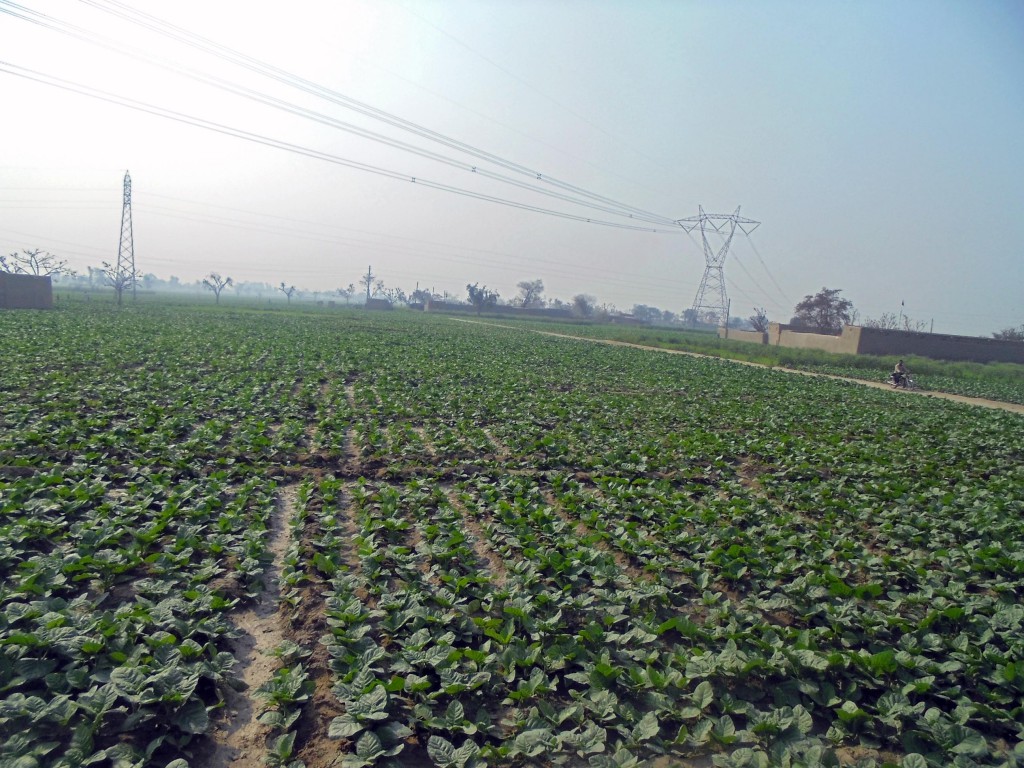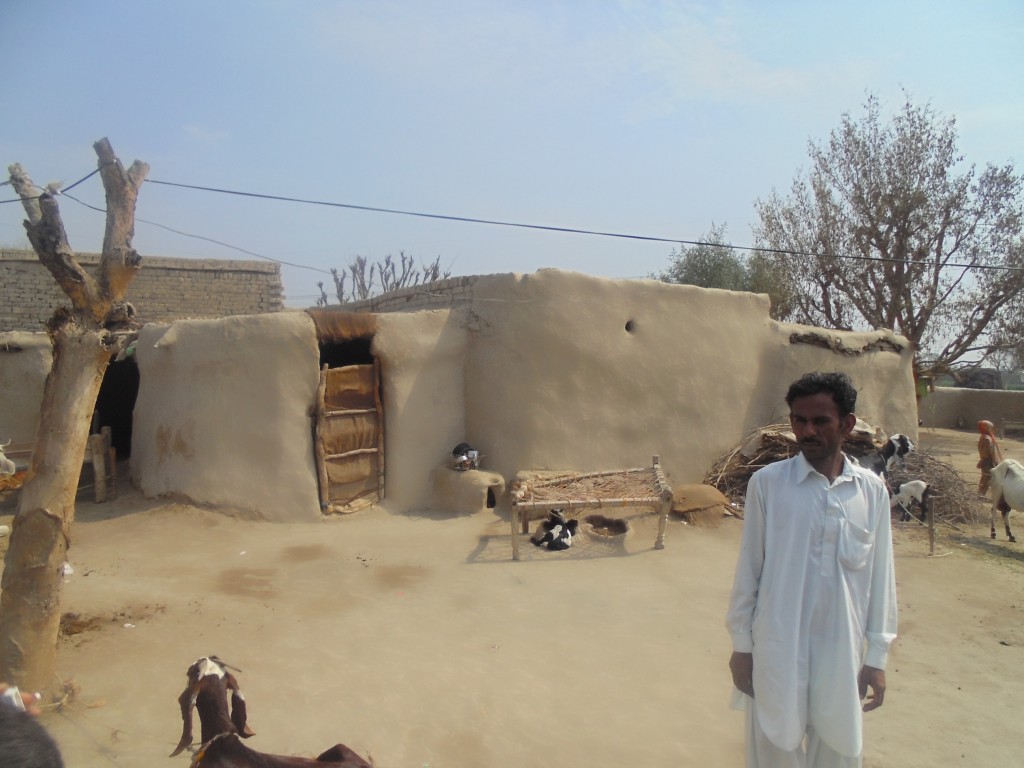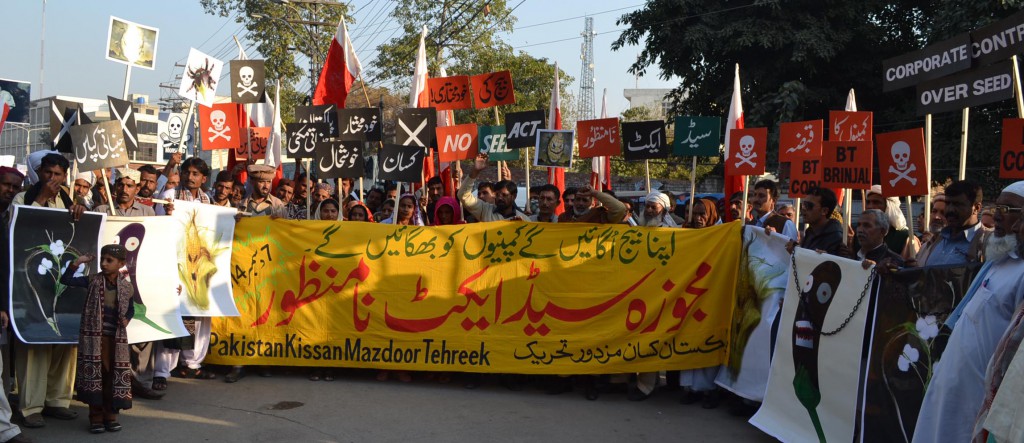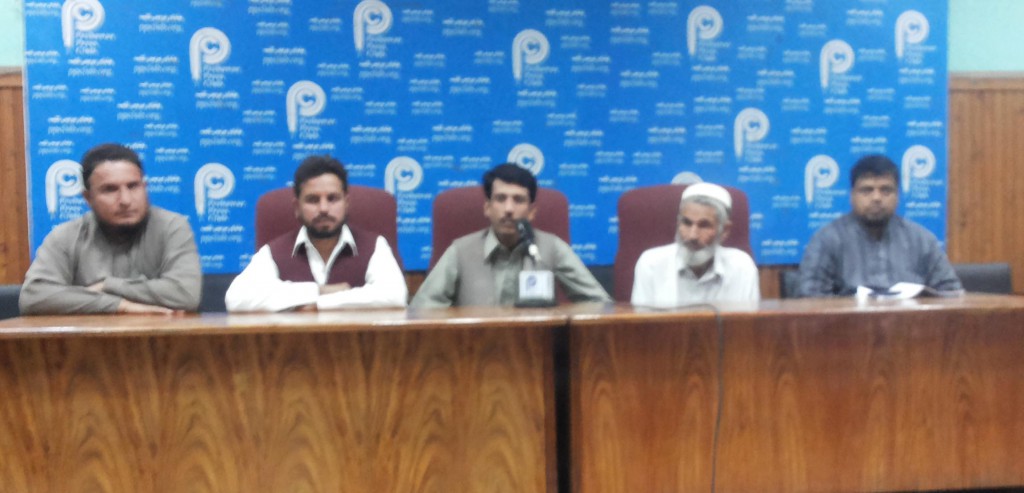March, 2015
The government of Punjab has given notifications to farmers to vacate more than 2700 acres of land in Mozae Azmat Wala, Tehsil Jampur, Rajanpur District. The land had been cleared and prepared for cultivation by settlers who came to this land in the 1920s. Today, more than 15,000 families live on this land; most of them have less than 2 acres of land. A majority have no land and only live here, working on other people’s land.

- Azmat Wala farmers protesting against Government of Punjab’s attempt to grab their lands.
It is not clear why the government has asked these people to vacate the land though rumors of the land being given to foreigners is rife. According to the people of Azmat Wala, their ancestors had toiled to make the land productive, clearing small hills, stones and poisonous snakes and other reptiles. Today the land is extremely productive growing high quality of tobacco, as well as other crops such as wheat, sunflower, cotton among others.
It is important to point out that since 2001 Pakistan has been ‘marketing’ state land for corporate agriculture. The Corporate Farming Ordinance 2001, and later the Pakistan Corporate Agriculture Farming strategy presented by the Zardari government have identified vast acres of government land which can be provided to foreign corporations for corporate agriculture. However, the case of Azmat Wala has demonstrated clearly that actually the so called state land is actually being made productive by farmers. Now, instead of giving the land to farmers, ensuring that they have decent livelihood, and shelter, the government is using police force to ensure that farmers leave the land they have made productive through sheer labor power, and no help from the government.
The farmers of Azmat Wala are determined to fight for their right to the land they have tilled over many decades and have initiated a determined struggle against government’s brutal tactics of trying to make them leave their land!






